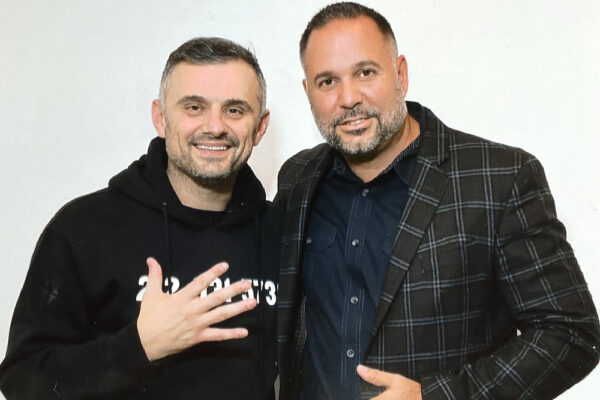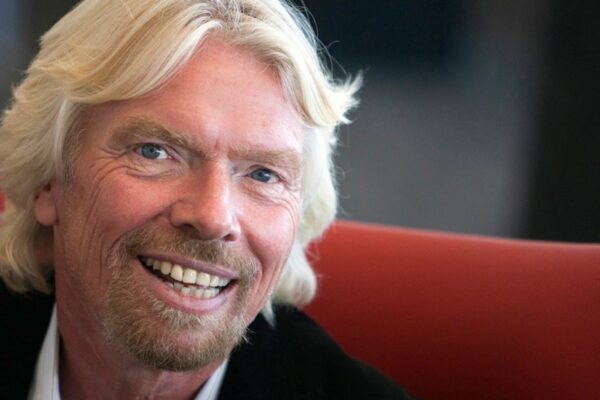 Hi Andrea, welcome to Entrepreneurship-interviews. Tell us a few words about yourself.
Hi Andrea, welcome to Entrepreneurship-interviews. Tell us a few words about yourself.
Andrea: Hello Christian, and first, let me thank you for this chance and for the good work on your entrepreneurship-interviews.com. Well, about me, I’m a guy with an idea. Before having the idea, I worked as a videogame developer first and as an S&M for a developer of industrial solutions. I also earned a BSc in Economics, which is nicely lodged in my bottom drawer.
Ok, we should let the readers know that last year you founded a company called Yellow Blue Soft that creates Tabbles. What exactly is Tabbles?
Andrea: and that would be the idea… the short version would be “it is a virtual folder manager, for desktop, where virtual folders are also tags.” Elaborating it a bit, I’d say that Tabbles is a tool that allows you to put the same file into several “magic folders” without copying the file… you can then find your files into each of the magic folders or ask the system to find for you all the files that are into those two magic folders. Technically: Tabbles is a file organizer that runs on a relational database; it has a pretty neat interface and several technical features which generate interest by themselves (it’s written in F#, and the GUI is in WPF). One thing is sure: in a way or another, it’s something you’ve not seen before.
Who is the typical user of tables?
Andrea: Both we (the developers) and our early users believe that something like Tabbles is where the future OS will h to in relation to file organization. Therefore, Tabbles can have a pretty broad audience. Right now, we’re concentrating our efforts on small businesses and professionals.
And what exactly does it do?
Andrea: Ok, the word “table” stands for “tag-bubble”: it’s a tag, and it’s a container at the same time. Imagine you can drag-drop a file into 3 folders, then look at the file and see those 3 folders floating around it, as if they were tags… then you can double click on each of those folders/tags and find your files. For example, you can drag-drop the same .doc in the tables “customer Smith,” “project Alpha,” “the year 2009,” and “Berlin”: you’ll be able to find your .doc inside each of the tables above (and the file was never copied). Moreover, with 3 clicks, you can tell Tabbles “show me all the files linked to the customer Smith and the year 2009” or “the customer Smith and Berlin,” as you would do when querying a relational DB. That’s it’s the core functionality, but it’s not all it does…
You told me you are 3 founders that work remotely: Denmark, Belgium, and Italy. Is it really possible to start and run a company while you are so far away?
Andrea: well, it seems so. Two out of the three of us have quite some experience with cross-border projects. Me personally, I’ve been managing a small team of colleagues located 2500km from our headquarters. This solid experience was indeed necessary to make such a step: I can imagine that you only believe remote-collaboration can work only after you’ve done it yourself.
What if you have to hire additional staff? How is this going to be handled?
Andrea: as in any startup, we’re the co-founders and the only employees of the company. The thing that allows us to work well independently is that we all cover different areas inside the company: I’m the S&M guy (as well as webmaster, community manager, PR…), Maurizio is the developer (he’s the man behind 100% of our technology), and Irma is the legal/administration/finance person (and sometimes she lends me a hand with S&M). If we were in the same office, probably we’d sitting in different rooms anyway, and meet once a week/month to discuss what’s going : and this is exactly what we’re doing – sometimes we meet in person, sometimes just over skype. That’s our remote collaboration recipe. So, to your question, we’re planning to hire people in different places: after all the office price is per sqm. and having two 100sqm offices shouldn’t be so prohibitively more expensive than having a 200sqm one, isn’t it?
I see. So what are the advantages and disadvantages of working remotely?
Andrea: the main disadvantage is that I can’t sit next to my beloved partners every day. The main advantage is that we all work from home, so the time we spend to get to our desks every day is limited, and we can work wearing pajamas (maybe we should considering extending this tradition to when we’ll have offices). Plus, as in any passionate self-funded startup, you really work 24/7; working from home does help a bit logistically.
You and one of your colleagues left your jobs a while ago to fully concentrate on Tabbles. Was this an important step, and how do you know when the time to do it is?
Andrea: In my case, I believe you can call it chemistry. I had several entrepreneur-ish ideas in the past 10 years and nearly started something a couple of times. This time, the idea startup as a subtle itch in the back of my head and then grew to keep me awake at night for 3 months a row… at that point, I knew it was “the idea” and that there was no going back. With Maurizio, it went this way: we’ve been friends for the past 15 years, and while I was looking for developers, I him a call just for a random chit-chat. He told me was actively looking to quit his job and starting something on his own, so I mentioned I had an idea, and within 30 seconds, he said “yes.” In the recent past, he spent some time working on something similar on his own (http://onefinger.sourceforge.net/), and the idea of Tabbles sounded very interesting to him. And here we are, one year later, selling our first licenses!
You’re in charge of Marketing and Sales. How does a small company like yours promote the products and find the buyer’s target?
Andrea: I come from a quite traditional kind of business where you wear a tie, you sit at a table, you speak some German (or Italian/French/English…) and get a contract signed. Doing S&M in our micro-ISV, I had to forget about this and learn about e-marketing, e-sales, PAD files, web traffic, and so on. So far, we preferred to hold-back a bit: our strategy has been to do a pretty early launch (read: launch a product which is very immature), get some feedback, and tune-up both the product and the marketing based on the early feedback, which is exactly what we’re doing (at the moment I can say we already got pretty far in this stage). In our next chapter, we’ll be dealing with redoing a big chunk of our marketing staff, dealing with press and blogs, and maybe even start investing a few cents in AdWords and similar things. The Balsamiq blog (http://www.balsamiq.com/blog/) has been a huge help: it’s a mine of resources, and it really helped us to understand a bunch of things about who we are and what we want to look like.
Coming back to Tabbles, what are its main benefits?
Andrea: “find and sort files based on what they’re related to, not based on where they are.” The main challenge for us is not explaining what the benefits of Tabbles are but making clear the differences between Tabbles and desktop search systems (like Google Desktop or Copernicus). With Tabbles, you can categorize (ultra-quickly and with a high degree of automation) your files and folders and then find and sort your files based on how you described them. The main difference with a search system is that the search system tries to understand what a file is about and tries and give you what it thinks you’re looking for. With Tabbles, it’s you at the wheel; it’s you setting the rules, defining what matters and what doesn’t, but most importantly, tell the system about things he could never find out…and very soon be able to share this categorization with your colleagues (yeah! :-D)
How did you come up with the idea?
Andrea: at my old job, I was doing quite some marketing stuff (both copyright and graphics), and after 3 years, I desperately needed to re-organize my files. Since a lot of files were used in different projects across the years, I had a hard time finding a folder (hierarchical) structure that would allow me to logically categorize and find what I was looking for: very often, I felt the need to place the same file into several folders. At that point, I thought, “it’s a common problem, there must be an easy solution to this…” so I started digging into Tucows and cnet looking for a “little app that would allow me to place the same file. Into several folders, without making copies.” After 2 months of digging and a culture made about tagging and DMS, I still couldn’t find a suitable solution. Then I thought, “why not doing it myself?”. Following are 3 months with my eyes open at night staring at the ceiling…and then Tabbles.
Any plans for the future? What could Tabbles become?
Andrea: Tabbles has already become a file-tagger and virtual folder manager and a virtual file system manager (did I mention that if you tag a file and then move it or rename it, Tabbles understands it?). In the next future, we want to allow the user to share their categorization (initially targeted at intranets).
By the way, you told me the company is self-funded. Any plans to attract some funding from the European community?
Andrea: Yep: we registered the company in Lithuania (Irma is from Lithuania), and among the favorable points of Lithuania is the fact the most of the funds from the EU have to go back from Bruxelles since they’re unassigned. We didn’t actively start looking yet, but we based our choice of the company’s legal seat also on this topic.
So if you are in Europe, do you think that Eu state funds are the way to go? The US way is based more on private money: Angel Investors and such.
Andrea: In Europe, taxes are typically higher than in the US, and some of this money is re-invested in enterprises of different. I’ve been professionally involved in EU-backed projects, and we all individually know quite a bit about it. We don’t say that we wouldn’t look into private capital (actually, we’ve some contacts already); it’s just we didn’t really dig into it yet. True, we’re European, and maybe things are a bit different here…but if it works out, I think there is nothing wrong with it.
You told me that the other 2 co-founders are actually friends of yours from school and University. Some say it’s a bad thing to go to business with your friends because if things get messy, you will not only have business problems but also run the risk of losing your friends. What do you think?
Andrea: I deeply disagree: founding a company is a lot like getting married, and you can’t get married to someone you don’t know well enough. Whether it’s an old colleague or an old friend, trust and knowledge of each other is a necessary ingredient to the success of any company. Then, of course, with talk, we discuss, and we get mad at each other sometimes, but whenever this happens, we always know that all we’re trying to do is achieving the best for the company (as an opposite of me digging my spoon a bit deeper than yours). Without this solidity, for sure, we wouldn’t have got where we are now.
What about the crisis. Does it really affect small businesses like yours?
Andrea: 3 guys living off their savings with no customers yet? It’s the perfect time to start a company! A crisis is an issue if you’re running a company with 1000+ employees and you see your revenues dropping and have to figure out how to pay salaries and bills at the end of the month…we have no salaries to pay, and we work from home. Plus, since we sell online, if our product rocks and maybe we sell 20-30% less because of the crisis, well, there is still a lot of money to be made…isn’t it?
Any advice for young entrepreneurs willing to start a business in the EU now?
Andrea: watch the Steve Jobs’ speech at Stanford ( http://www.youtube.com/watch?v=vja4GJv40xE ) and see if you’re connecting the dot as well. Don’t listen to your friends and family unless they’re entrepreneurs themselves. Get yourself together and find a good team if you can. From that point on, listen to anyone who may fall in the target group of your product/service: it doesn’t matter old/young/rich/poor, get to hear as many as them as possible, correct your trajectory on a daily basis but don’t lose your focus. Still, doubting? Remember that in these globalized days, the sole fact of having to start a company and got some know-how together can result valuable when looking for a job or starting a consulting career…the bottom line is: even if everything goes wrong, you will have collected valuable knowledge which can later be sold to someone else in a way or another. That’s it, I guess




